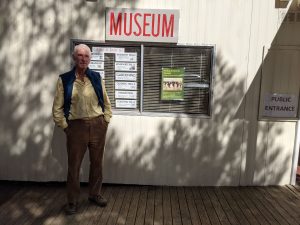News companies stuggle with online move
By ALISON DANCE
ONLINE newspaper subscriptions have exceeded the expectations of international companies but further investigation reveals this will not free the newspaper industry from its financial pressures.
The Australian recently announced subscription figures revealing 40 000 online subscribers were gained in just a few months.
The quarterly Fairfax Metro Media Audience Report shows an increase of more than 1500 readers of its weekly online news from 2010 to 2011.
Although these figures seem impressive they will not compensate for losses in the print medium with online subscriptions and advertisements contributing to just five percent of newspaper companies’ total revenue.
In order to gain financial stability, many news organisations are beginning to charge for online access to their news which is known as ‘putting the paper behind a paywall’.
Matthew Ricketson, Professor in Journalism at the University of Canberra, believes this is a necessary step for newspapers.
“They have to do it. If they can’t persuade people to pay online for what they do offline then they’re in trouble financially,” he said.
Dr Ricketson believes the industry is in a transitional phase to an online medium with the two newspaper leaders applying different strategies with no way of knowing which is best.
“News Limited gradually persuades people to pay online which they believe will recoup their costs…Fairfax try to get the maximum number of people and give online access for free then try to persuade advertisers to go online,” he said.
Although online and print advertising are expected to make a slow but successful increase from 2011 to 2015, the Internet has had the largest success by far with an 18% increase in revenue which may account for the papers losses.
The transition to an online medium for Fairfax has resulted in the company recently announcing it will stop circulating its paper based newspapers to remote areas.
Fairfax CEO, Greg Hywood, announced in a February briefing to investors that the company’s costs are heavily impacted on by how and where its newspapers are delivered.
“It does not make sense to lose money by delivering small amounts of newspapers to remote areas,” he said.
Dr Ricketson said the announcement was unexpected although understands it is expensive to provide newspapers to remote areas.
“The basis for most papers is usually the more sales the better so to choose to not provide these is surprising and shows they are under pressure financially,” he said.
Joan Osborne works in town management in the remote South Australian township of Innamincka which receives its newspaper weekly by air as part of the world’s longest mail run.
She believes the town would be forced to turn to other mediums if the newspapers stopped being delivered.
“We get remote area TV because we’re in a black spot so if we stopped getting the paper we’d turn to that instead. We’d have no choice,” she said.
Brad Hatch, the Manager of Communications at Fairfax News Limited, said no final decisions have been made about stopping circulation to remote areas.
Dr Ricketson believes newspapers are in a difficult position because of the transitional phase.
“The problem for companies is people who have a habit of paper based newspapers don’t want the online version, they want the newspaper and can’t see why is should stop,” he said.
The transition to an online medium raises several problems for the newspaper industry but there are also some benefits from the transition.
The costs of production, retailing and distribution for newspapers have been removed and there is now a wider availability of news and opinions available to the public.
Dr Ricketson believes it is difficult to predict the future of the newspaper industry following the shift to online news.
“No one knows if in the future there will be no papers or fewer papers. Lots of people now have an online habit but the way media is consumed might change again,” he said.





Be the first to comment!